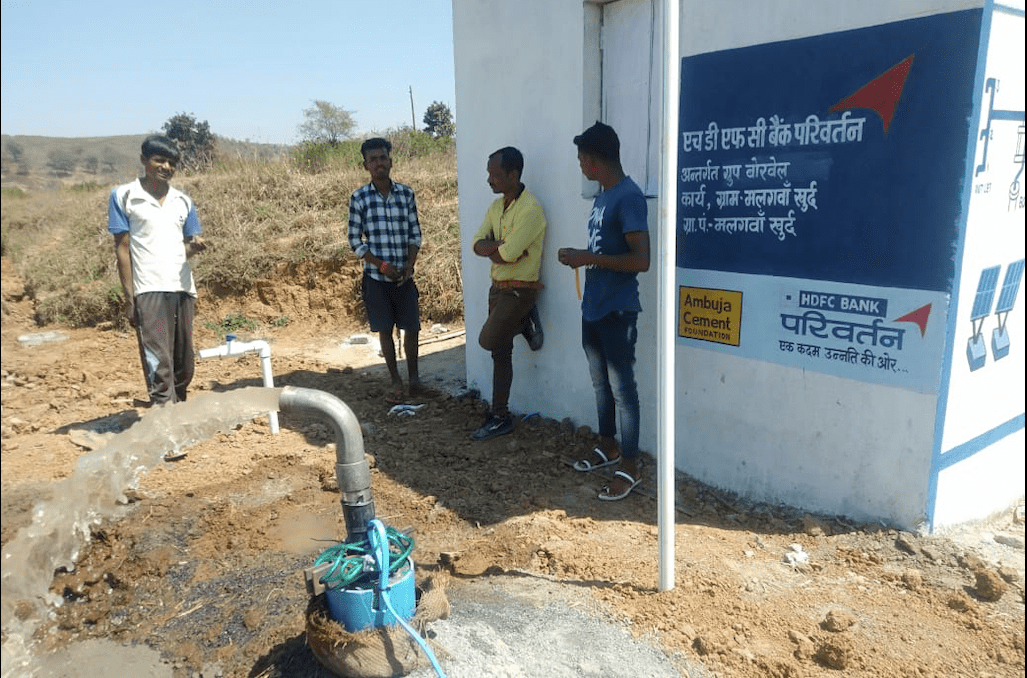Marginal farmers in India often struggle with know-how or financial wherewithal to develop and manage efficient irrigation for their crops without depleting groundwater. This problem is further compounded in poor, remote, rural and tribal regions where agriculture is the only occupation and groundwater is the only source available for irrigation. While government schemes may exist to support the farmers, unavailability of proper documentation often deters them from availing these schemes.
In such a context, group wells offer a solution that looks at both efficient groundwater resource management and boosting agricultural productivity. A group well treats groundwater as a shared responsibility and allows equitable distribution to all the members of the group. It requires farmers to pool resources and create a shared irrigation system that is managed by the group and not the individual. Thus, the management of water is enabled through a people’s institution.

Prior to setting up a group well, Ambuja Foundation conducts numerous discussions that enumerate the benefits to the farmers and clarify their role in the construction and management of the structure. A Cost-Benefit Analysis is also highlighted as a part of these initial conversations. Formal agreements are then signed between the farmers that maintain group ownership over the shared resource. These agreements include supply timings, crops, cropping patterns, water distribution quantities and charges. A committee is formed to oversee the collection of payments and is also responsible for maintenance and repair.
The group well itself might be an open well, extending up to 40 feet below or a borewell with supply pipelines that goes down 200-250 feet below. In regions without electricity, Ambuja Foundation enables farmers with solar pumps in collaboration with the electricity board to move the water from the wells to the fields. The cost of setting up a group well starts from about 2.5 lakhs and can go all the way up to Rs. 10 Lakhs, depending on the extent of pipelines and pumps used. Of the investment, the farmers contribute up to 20% of the costs.
With the structure in place, farmers start drawing water as per the pre-decided norms. The biggest benefit that group wells offer the farmers is the assured availability of water that enables them to cultivate multiple crops. Also, upkeep and repair become a shared activity, reducing the costs of irrigation. Moreover, group ownership enables the sustainable use of water.
In Mangi, a village in the tribal belt of Chandrapur in Maharashtra, a group of farmers were enabled by Ambuja Foundation to build an open group well two years ago. Through pipelines and formal agreements, the water distribution is managed in an equitable manner. Consequently, where farming was seasonal, each farmer is now able to cultivate crops throughout the year. Where Cotton was the only crop harvested earlier, today these farmers grow high margin vegetables and pulses also.
Ambuja Foundation works with multiple partners, including Godrej Agrovet, HDFC Bank, the Rotary Club, and the government. Till date, it has successfully implemented group wells in 5 locations of Chhattisgarh and in 5 locations of Chandrapur, Maharashtra.
Invest in a CSR Implementation partnership for Water with Ambuja Foundation by writing to brajeshsingh.tomar.ext@ambujafoundation.com


